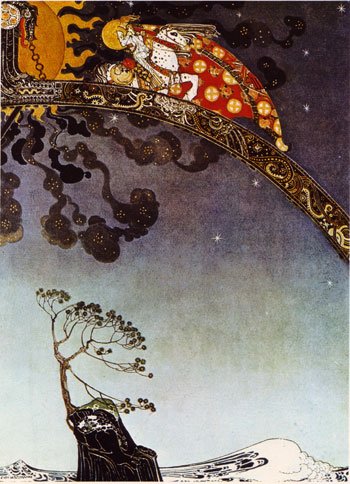like the sun

Carl Jung compared a human life to a single day, in which we are the sun rising, reaching to the heights, then slipping down to night. Today I am 51, and this image strikes me again now, as it did the first time I read about it. Jung maintained that the first half of life, for all its confusion and dissonance, is relatively easy, as, like the sun, we rise ever higher, casting our light over ever greater reaches, seeing ever further. Eventually we reach our midday, the midpoint of life. When this occurs varies, it seems to me: I am not sure if someone who dies in their 20s achieves their midlife in their teens. I suspect not. I suspect that this is like the sun being snuffed out mid-morning – a powerful metaphor for the shock of early death: psychically, a wrenching insult against the ‘proper way of things’. What is more problematical is whether, in any place or time where most people die at 40 (say), midlife is reached at 20 – I suspect so – that we map our lives, subconsciously, to the time we think we have. This leads naturally to how this perception changes when considering lives, like many lived today, in which people expect to live longer than their parents. I wonder indeed if this indistinct, slipping end point may not be part of the reason for some of our confusion about death. Not that that seems to me likely to be the main reason for such confusion; this surely has to do with the obsession we have with the morning of our lives – with youth. For what is this other than an obsession with keeping our gaze fixed on where we came from, rather than on where we are going?
Jung said that the secret to life is not the morning, but rather the afternoon. For it is then that our sun begins to descend to its ultimate quenching. Jung talked about a process he terms ‘individuation’ – that is the setting right of those things within us that are in disorder. Analogous, perhaps, to the feeling people often have who know they are soon to die of wanting to put their affairs in order. Certainly, by the end, we lose everything: literally everything. But it is not as if we reach our sunset carrying everything we have accumulated in life. Much of what we have had we will have lost: family, friends, our vigour, our hair, our teeth. But also, if we are wise: our fear, our confusions, our lusts, our greed, our gluttonies. Perhaps also, admittedly, our hope is lost (for I have no belief in an afterlife). Looking back to youth, an ever harder thing to do with failing sight and memory, is surely to get it all wrong? When moving forwards, looking back must be wrong. Worse, like any threat, death is more terrifying if you turn your back on it.
So, I am 51 today, and very happy to be so, happy to be in the afternoon of my life. Happy to accept that I no longer can find the right words in conversation, and that I forget all kinds of things all the time. My hair is performing a disappearing trick and many of my appetites have diminished. But I am more present than I have ever been – and that makes me see reality a little more clearly, and the time I have left moves more slowly. I am more at peace with myself. I value silence more, solitude, but also other people. I am more tolerant of my faults and failings, and thus those of others. I worry for the world, but do not feel any longer it is somehow all my responsibility. I do what I can. Most of all I advance, a step at a time, enjoying the view, trying to face in the direction I’m going.